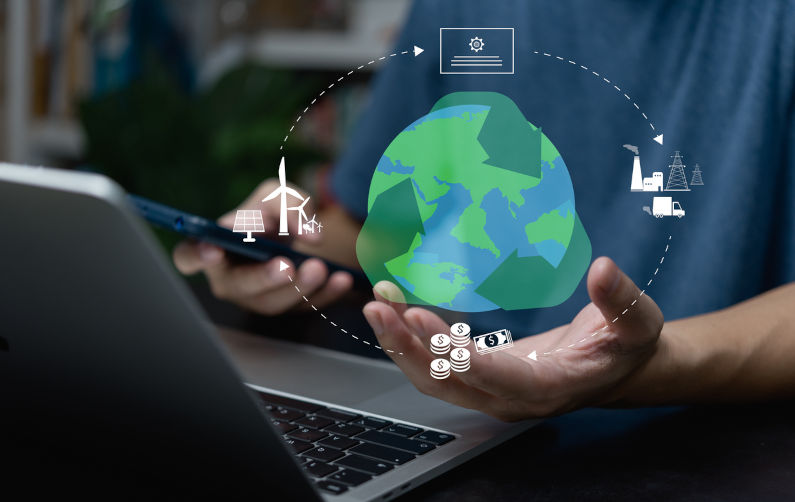The renewable opportunities behind the climate politics
June 29, 2024
The world has made up its mind on the move to renewables. All you have to do is listen to the markets, look at what global capital is doing and ask businesses here in Australia.
A new fissure has emerged in Australia’s political landscape with Opposition Leader Peter Dutton casting doubt on the LNP bringing a 2030 emissions reduction target to the election and putting nuclear at the core of his energy policy.
His punt on nuclear is ‘at best’ highly unrealistic. Even if we disregarded the myriad risks, nuclear would be decades away and never be built in time, or at the scale, to achieve the level of emissions reductions we need to see in the next decade.
What Mr Dutton has achieved is to again ignite the politicking over climate. And the politicking will only be amplified as we edge closer to the next Federal election.
But politics is politics. It will always be coloured by hyperbole, exaggeration, claim and counter claim. The business of nation building is different.
How Australia prepares, plans and executes the move to be a renewable energy superpower – and it is beyond question that we must do so – is the critical work of policy makers. It is a once-in-a-century opportunity that will define our nation’s future prosperity.
There can be no real argument against this. The danger now is that progress gets delayed, thinking gets distracted and politics ends up trumping real action.
The world has made up its mind on the move to renewables. All you have to do is listen to the markets, look at what global capital is doing and ask businesses here in Australia.
And while Australia has benefited economically from being the world’s third largest exporter of fossil fuels, now that the world is rapidly moving away from coal and gas, Australia needs to act quickly to replace with clean exports.
The opportunity for Australia to be a renewable energy superpower and play a role in accelerating global action is too critical to be missed. We must put aside the political noise and seize these emerging opportunities.
Australia has bid to host COP31, in partnership with the Pacific, in 2026. We could know if this bid has been successful as early as November at COP29 in Baku, Azerbaijan.
It is difficult to overestimate the significance of a winning bid to Australia.
Firstly, it would give Australia a highly charged diplomatic role in leading the multilateral negotiations to implement key global emission targets.
This level of global leadership would see Australia setting the agenda for the world to address all aspects of the climate crisis: supporting the level of renewables ambition needed to rapidly replace fossil fuel exports, driving down emissions, adapting to its acute impacts, and building resilience to the effects yet to come through innovative technology and investments.
But beyond the global negotiations, there are also enormous opportunities to display Australian innovation to corporate leaders, investors, philanthropists, academics, non-government organisations and many others.
A climate COP in Oceania will also bring the diplomatic leadership and expertise of Pacific leaders to bear upon this important global platform. Again, it’s hard to overstate how important this unique partnership is to driving global ambition, as the Pacific and other small island states are highly effective at catalysing global climate action.
COP31 could be a ‘People’s COP’, including a focus on the critical stewardship and leadership of Australia’s Indigenous people and the people of the Pacific.
Indigenous people have the knowledge and expertise and can provide practical solutions and lead the world in advancing climate justice, something that is critical in tackling all aspects of climate change.
In July, I will join an Australian civil society delegation to Brazil, the host of COP30, to explore opportunities to collaborate. Developing enduring and trusting relationships now will strengthen the global climate movement and allow us to progress shared priorities through consecutive COPs, regardless of where they are held.
Another key challenge on the road to net zero is to work to regenerate nature.
There is now a growing global realisation that, while critical, decarbonising our economy will not be enough to mitigate catastrophic climate change. Protecting and regenerating nature will ‘make or break’ net zero.
Nature and climate are two sides of the same coin - one impacts the other while offering solutions for resilience and emissions reduction.
Therefore, there must be more emphasis on tackling deforestation, reducing ocean pollution and transforming food production if we are to stabilise global temperature rise to 1.5 °C.
Australia needs to take urgent action based on the best available science on global warming to protect our oceans, marine life and coral reefs. This requires setting a strong target of reducing emissions by at least 90% below 2005 levels by 2035 and urgently phasing out all fossil fuels.
The politicking around targets and renewables will be the fodder of newspaper headlines in the lead-up to the next election. But the important national and state planning and policy work behind the scenes must not be slowed.
This is essential if Australia is to become a renewable energy superpower, show appropriate respect for the leadership of First Nations and Pacific Island Countries, and positively influence global climate action.
